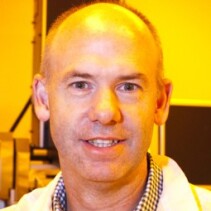
Professor Martin Allen
Principal Investigator
- Phone:
- +64 (0)29 778 7787
Address:
Electrical & Computer Engineering
University of Canterbury
Private Bag 4800
Christchurch 8140
Biography
Martin Allen is a Professor in electrical engineering at the University of Canterbury. He has a BSc (Hons) degree in Physics from the University of Bristol, UK, an MSc in Plasma Physics from the University of Oxford, UK, and a PhD in Electrical Engineering from the University of Canterbury.
Research interests
His current research interests include the fundamental properties and commercial device applications of metal oxide semiconductors, particularly those that are optically active in the UV spectrum.
Martin also has a Diploma of Teaching from the Christchurch College of Education and is involved in international science education programmes concerning the risks and benefits of solar UV exposure.
Working as a multidisciplinary team has really supercharged the development of this (changing the properties of metal-oxide semi-conductors).
Professor Martin Allen
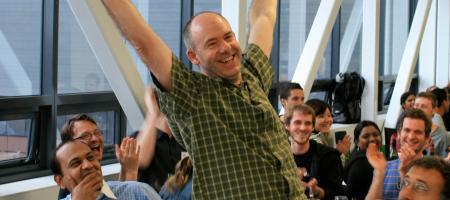
In the news

Annual Report
2024 Funding successes - Annual Report 2024
June 15, 2025
Funding successes for our Investigators and their research programmes during 2024.

News Article
MacDiarmid Institute researchers successful in latest MBIE round
September 20, 2024
The MacDiarmid Institute is pleased to share the following successes from its researchers in this year’s MBIE Endeavour Fund round.
Read more about MacDiarmid Institute researchers successful in latest MBIE round
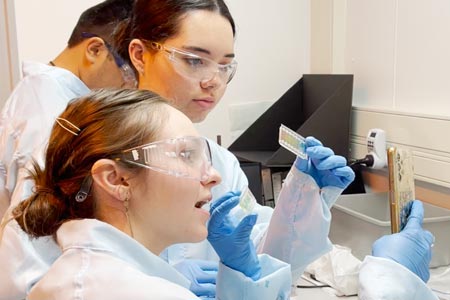
Annual Report
DiscoveryCamp and NanoCamp - Annual Report 2023
April 14, 2024
11 students attended our 14th DiscoveryCamp in Christchurch, and 11 students took part in our 13th NanoCamp in Palmerston North.
Read more about DiscoveryCamp and NanoCamp - Annual Report 2023

Annual Report
Funding successes - Annual Report 2022
April 19, 2023
Funding successes for our investigators and their research programmes during 2022. This funding enables our researchers and collaborators to continue their breakthrough research in advanced materials and nanotechnology.

Annual Report
Funding successes - Annual Report 2021
May 9, 2022
Funding successes for our investigators and their research programmes during 2021. This funding enables our researchers and collaborators to continue their breakthrough research in advanced materials and nanotechnology.

News Article
2021 MacDiarmid Institute Marsden grant successes
November 3, 2021
MacDiarmid Institute led research received $6.2 million funding in 2021 Te Pūtea Rangahau a Marsden, the Marsden Fund.
Read more about 2021 MacDiarmid Institute Marsden grant successes

Annual Report
Funding successes - Annual Report 2020
March 24, 2021
Funding successes for our investigators and their research programmes during 2020. This funding enables our researchers and collaborators to continue their breakthrough research in advanced materials and nanotechnology.

Annual Report
Funding successes - Annual Report 2019
May 26, 2020
Funding successes for our investigators and their research programmes during 2019. This funding enables our researchers and collaborators to continue their breakthrough research in advanced materials and nanotechnology.

Annual Report
2018 funding successes - Annual Report 2018
April 8, 2019
Funding successes for our investigators and their research programmes during 2018. This funding enables our researchers and collaborators to continue their breakthrough research in advanced materials and nanotechnology.

Annual Report
Sunsmart science for schools - Annual Report 2018
April 8, 2019
Principal Investigator Associate Professor Martin Allen has designed and made lightweight, wearable, electronic UV dosimeters for skin cancer prevention and vitamin D research.
Read more about Sunsmart science for schools - Annual Report 2018
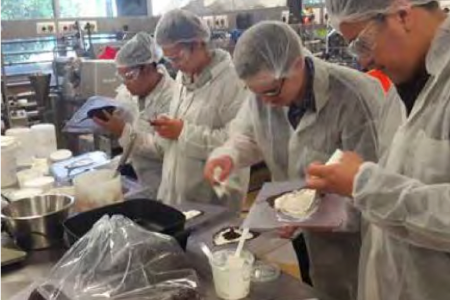
Annual Report
DiscoveryCamp and NanoCamp - Annual Report 2018
April 8, 2019
The annual NanoCamp and DiscoveryCamp for Year 12 and 13 secondary school students are hugely popular and attract many more applications than there are places available.
Read more about DiscoveryCamp and NanoCamp - Annual Report 2018
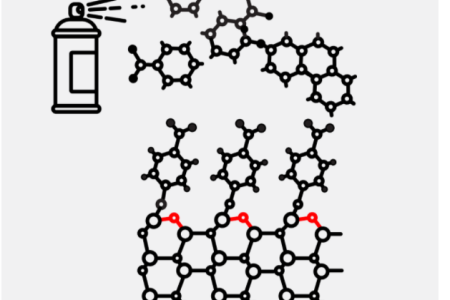
Annual Report
1.3 Painting semiconductors - Annual Report 2017
May 18, 2018
Imagine a point-of-care electronic blood test that can provide an immediate result in a doctor’s surgery, instead of the current tests that have to be sent away to a lab. The blood test device would plug into a mobile phone to provide a reading, and would be cheap and biofriendly.
Read more about 1.3 Painting semiconductors - Annual Report 2017
Videos
Martin Allen - UV sensors to combat skin cancer
March 21, 2019
Associate Professor Martin Allen has developed wearable UV sensors that can be used to accurately measure levels of UV exposure.
Read more about Martin Allen - UV sensors to combat skin cancer
MacDiarmid Institute DiscoveryCamp 2023
August 24, 2023
The MacDiarmid Institute DiscoveryCamp 2023 participants in the Chemical and Process Engineering Labs at University of Canterbury.


